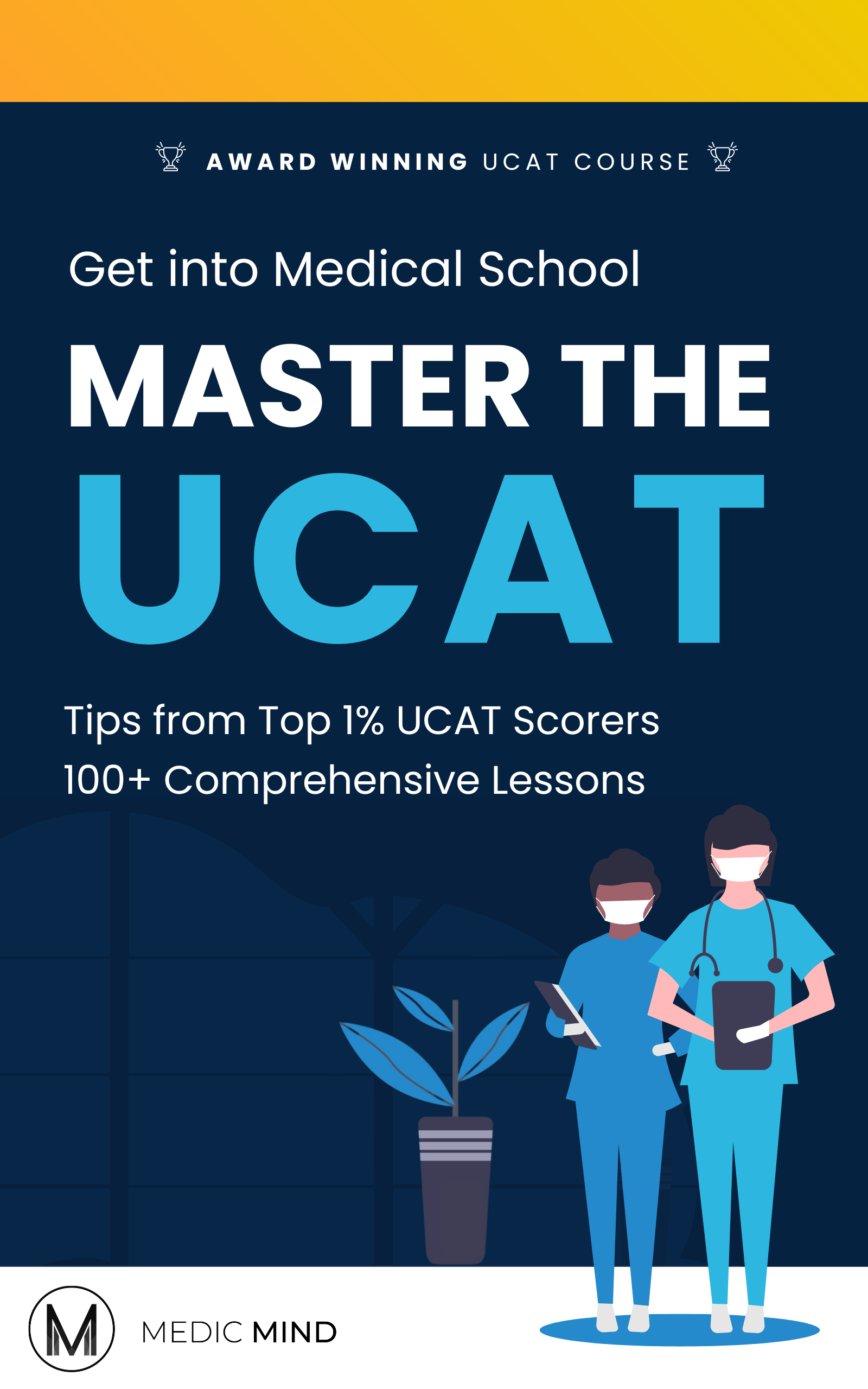Loading...

Foundation Courses for Medical School
Foundation courses in medicine are designed for students who wish to pursue a medical degree but lack the necessary academic qualifications. These courses offer a bridging opportunity to help students acquire the knowledge and skills required for entry into medical school. Foundation courses typically last for one year, and they are available at various universities and colleges across the UK.
Foundation courses are an excellent option for students who have completed their A-levels but did not meet the requirements for direct entry into a medical degree programme. These courses offer a chance to gain valuable skills and knowledge, including basic medical science, healthcare, and clinical skills. Additionally, foundation courses provide opportunities for students to build up their academic confidence and develop the essential study skills required for success in a medical school application.
Most foundation courses are structured similarly to the first year of a medical degree programme, and students will be expected to attend lectures, participate in laboratory work, and complete assignments and assessments. Some foundation courses may also offer clinical placements, allowing students to gain hands-on experience in a healthcare setting.
It’s worth noting that foundation courses are highly competitive, and the admissions process can be rigorous. Most courses require a minimum of five GCSEs, including English, maths, and science subjects, at grade C or above. Additionally, students will need to demonstrate a strong interest in medicine, usually through relevant work experience or voluntary activities.
Here are 15+ UK schools offering foundation courses in medicine, along with a brief description of each:

1- Aberdeen University
Aberdeen University offers the Gateway2Medicine programme, a one-year course designed for Scottish applicants from a widening access background. Upon successful completion of the program and satisfactory performance in the UCAT and MMI interview, students are guaranteed a place in the university’s undergraduate Medicine programme.
2- Bristol University
Bristol University offers the Gateway to Medicine programme, a widening participation course intended for students who have the potential to become a Doctor but do not meet the standard academic entry requirements for the 5-year undergraduate Medicine course.
3- Dundee University
Dundee University offers the Gateway to Medicine programme, a one-year course tailored to the needs and aspirations of students who meet the relevant criteria and are striving towards the 5-year degree course.
4- Edge Hill University
Edge Hill University’s Medicine with Foundation Year programme is designed for students from the North West of England who aspire to become doctors but are unlikely to meet the entry requirements for the 5-year course. Successful completion of assessments and meeting course requirements will allow students to transfer to the Medicine course.
5- Hull York Medical School
Hull York Medical School offers the Medicine with a Gateway Year programme, a widening participation initiative facilitating access to Medicine for those from underrepresented backgrounds. Successful completion of the program leads to automatic progression to their 5-year Medicine course.
6- Keele University
Keele University’s Health Foundation Year for Medicine is a gateway route into Medicine for students from underrepresented groups. Completion of the foundation year allows students to progress to the 5-year degree course.
7- King’s College London
King’s College London’s Extended Medical Degree Programme is for students studying A-Levels or Access to Medicine at a non-selective state school, or participants of Realising Opportunities across England. Additional support is provided in the first two years of medical study.
8- Lancaster University
Lancaster University’s Medicine and Surgery with a Gateway Year programme is for candidates who are not eligible to apply directly to the Medicine and Surgery degree programme but fulfill widening participation criteria or have significant mitigating circumstances. The foundation year prepares students to progress to the Medicine course.
9- Leeds University
Leeds University’s Gateway Year to Medicine programme is specifically for students from a widening participation background who aspire to take their first steps into Medicine. Upon reaching the required grades and completing the Gateway year, students will move on to the 5-year Medicine course.
10- Leicester University
Leicester University offers the Medicine with Foundation Year programme for students who wish to study Medicine at the university but are less likely to meet the entry requirements of the 5-year course. Upon completion of the foundation year, students progress to the Medicine course.
11- Liverpool University
Liverpool University’s Foundation to Human and Animal Health Professions (Medicine) is a year zero foundation programme designed for mature students who have been out of formal education for some time or who have taken non-traditional qualifications. Completion of the program leads to access to a Medicine and Surgery MBChB program.
12- Manchester University
Manchester University’s Medicine with Foundation Year programme is for students who need to spend a year preparing for the 5-year Medicine course if they do not have the appropriate science qualifications for direct entry.
13- Nottingham University
Nottingham University’s Medicine with a Foundation Year programme is for students who want to study Medicine but do not meet the typical entry requirements. The Foundation year provides small class sizes, and upon successful completion of the year, students transition to the standard Medicine course structure.
14- Norwich Medical School (UEA)
Norwich Medical School (UEA)’s Medicine with a Gateway Year programme is designed for students whose circumstances or educational opportunities have prevented them from realising their academic potential. The Gateway year equips students with the necessary academic skills and knowledge to progress to the 5-year Medicine course.
15- Plymouth University
Plymouth University’s Bachelor of Medicine, Bachelor of Surgery with Foundation programme is an alternative entry route into Medicine for able students whose education has been impacted by adversity. Successful completion of the Foundation year allows direct enrollment onto the 5-year Medicine course.
16- Southampton University
Southampton University’s Medicine BM6 Widening Participation course aims to broaden access to Medicine by welcoming applicants who may face socio-economic or educational barriers. Eligibility may extend to individuals whose parent/guardian receive benefits or those who will be the first in their family to pursue higher education.
17- St Andrews University
St Andrews University’s Gateway to Medicine is geared towards addressing the under-representation of certain groups in higher education, particularly in the study of Medicine; the course targets Scottish residents. Upon completion, students will transition into the six-year Medicine course.
18- University of Central Lancashire (UCLan)
University of Central Lancashire (UCLan)’s Foundation Entry Bachelor of Medicine and Bachelor of Surgery is exclusive to international students. The Foundation year serves as a preparatory phase by providing essential skills, knowledge, and confidence for progression onto the 5-year Medicine programme.
Several Medical Schools provide standalone Foundation programmes that are aimed at bolstering your chances of getting admitted into Medical School. Some of these courses may even qualify you for a Medical School interview upon completion. The following universities offer such programs:
- Bradford University – Foundation in Clinical Sciences/Medicine: A 1-year course that caters to students who aspire to apply to Medical School or progress into the BSc in Clinical Sciences, but lack the required science A-Levels or entry requirements for direct entry. Sheffield Medical School has an established partnership with Clinical Sciences. Other Medical Schools also accept the Foundation Year, but it’s recommended to contact the Medical Schools individually for further guidance.
- Buckingham University – Certificate in Medical Foundation Studies: A 9-month programme aimed at students who wish to pursue any of the university’s BSc (Hons) Allied Health or Health Sciences programmes but lack the entry requirements and need additional preparation.
CertHE Medical Sciences (Pre-Med) is a 9-month course designed to enhance students’ applications for Medical or Dental School. Graduates receive a Certificate of Higher Education (CertHE) in Medical Science qualification.
- Aston University – Pathway to Healthcare Programme: An 18-month course that runs alongside your A-levels. It comprises subject taster days, work experience, A-Level revision boot camps, academic tutoring, and specialist interview preparation workshops. Successful completion of the program will make you eligible for a contextual Medicine offer from Aston.
Overall, foundation courses can be an excellent pathway into a medical degree programme, providing students with the skills, knowledge, and experience they need to succeed. However, it’s essential to research the different options carefully and ensure that you meet the entry requirements before applying.
FAQs
→ What are the entry requirements for a medical foundation course?
The entry requirements for medical foundation courses may vary depending on the institution. Generally, candidates will need to have completed high school or equivalent qualifications, with strong grades in relevant subjects such as biology, chemistry, and mathematics. Some institutions may also require candidates to have completed additional qualifications or tests, such as the BMAT or UCAT.
→ How long does a medical foundation course typically last?
Medical foundation courses can vary in length depending on the institution and the program. Generally, they last between one and two years. During this time, students will take courses in relevant subjects such as anatomy, physiology, and pharmacology, as well as courses in communication skills and ethics.
→ How hard is it to get into a medical foundation course?
Getting into a medical foundation course can be competitive, as these programs are designed to prepare students for entry into medical school. The specific requirements and admissions criteria may vary between institutions, but generally, students will need to have strong academic credentials and demonstrate a genuine interest in pursuing a career in medicine.
→ What are the benefits of taking a medical foundation course?
There are several benefits to taking a medical foundation course, including the opportunity to gain a deeper understanding of medical concepts and develop essential study and time-management skills.
Additionally, medical foundation courses can provide practical experience through clinical placements or research opportunities, which can help students stand out in the competitive medical school application process.
→ What is the best medical foundation course?
Determining the “best” medical foundation course depends on a variety of factors, including individual preferences and career goals. Some factors to consider when researching medical foundation courses may include the course curriculum, the reputation of the institution, and the opportunities for practical experience or research.
→ After taking a medical foundation course, am I guaranteed a place at medical school?
While completing a medical foundation course can improve a student’s chances of being accepted into medical school, it does not guarantee admission. Students will still need to meet the specific admissions criteria for the medical schools they are applying to and compete with other qualified applicants.
However, completing a medical foundation course can demonstrate a student’s commitment to pursuing a career in medicine and can provide valuable preparation for the rigours of medical school.





Was this article helpful?
Still got a question? Leave a comment
Leave a comment